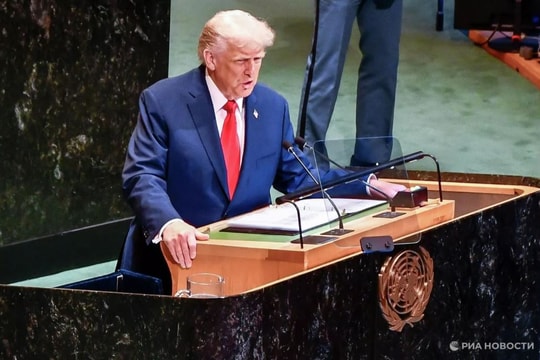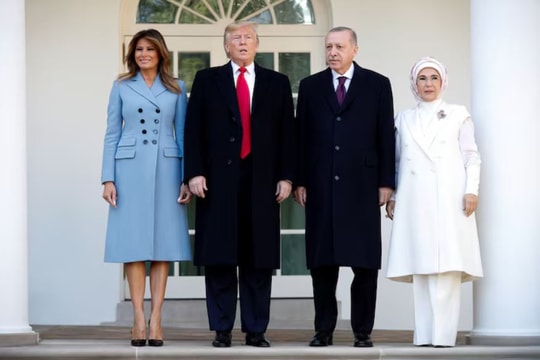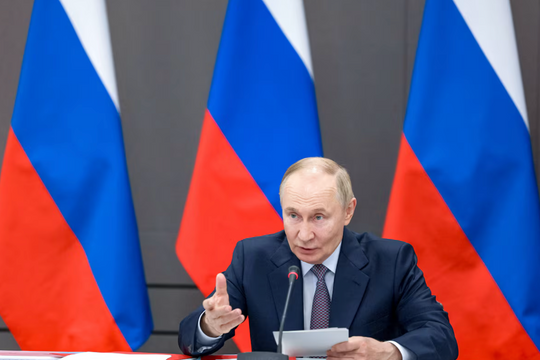Is the US-China "marriage" easy to mend?
(Baonghean.vn) - The “marriage” between the US and China is now more fragile than ever since the normalization of relations in 1979. Bilateral tensions continue to escalate as disagreements become more apparent over the possibility of a trade war, increased strategic competition and cyber espionage.
In such challenging circumstances, rebuilding a trustworthy strategic partnership is imperative, as the fruits of bilateral cooperation benefit not only the two sides, but the international community as a whole.
Nothing brings adversaries together like bigger rivals or common problems. Recent efforts by the United States and China to facilitate North Korea’s denuclearization offer a rare opportunity for a diplomatic breakthrough. But more success will be needed to mend the relationship.
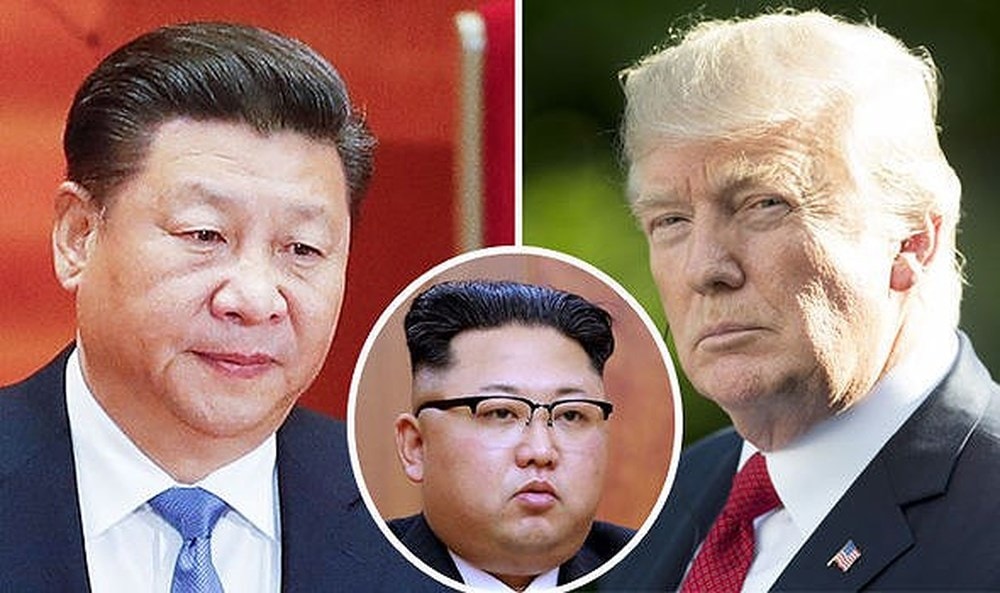 |
| Recent efforts by the US and China to facilitate North Korea's denuclearization offer a rare opportunity for a diplomatic breakthrough. Illustration photo: Internet |
Fundamental issues in US-China relations
Headlines announcing the emergence of a US-China trade war have been common over the past few months. Escalating tariffs on both sides could have a negative impact on the economic development of both countries.
For the US, the possibility of a trade war comes at a sensitive time, when the country's economy has just recovered from the 2008 financial crisis. Although the US economy is currently in relatively good shape, retaliation also has the potential to "level out" economic growth, pushing the country into a recession.
For China, the consequences of the trade dispute could be huge as it faces other economic headwinds, including declines in exports, investment and economic growth compared to last year.
Increased strategic competition
Over the past three decades, China has transformed itself from an isolated nation mired in poverty into a rising superpower. Its rise is multidimensional, its extraordinary economic and military growth and its aggressive diplomacy are transforming East Asia.
China's growing power and influence bothers the US, because it means Washington's declining influence in the region.
Complete control of the South China Sea and the East China Sea are at the top of the agenda for Beijing and Washington. Both sides are competing to strengthen alliances with other Asian countries (e.g., Japan, South Korea, etc.) to ensure their regional dominance. Control of the oceans provides supremacy in regional and global trade. Moreover, this struggle for influence extends beyond the Asia-Pacific region to Africa, Latin America, Central Asia and the Middle East.
Lack of strategic confidence
Despite the competitive nature of their relationship, the United States and China understand that they have the most important bilateral relationship in the world. Yet mistrust of each other’s long-term intentions continues to impede closer cooperation. Lack of transparency in military planning and doctrine only exacerbates this trust deficit.
While the US still has the world’s largest military, two decades of double-digit growth in China’s defense budget has narrowed the gap. The Chinese military is now a professional force, meticulously studying the US military to identify any weaknesses.
The US has accused the Chinese government of routinely hacking US military computers, and China has built anti-satellite systems and anti-ship ballistic missiles to counter US power in space and at sea.
China has also accused the United States of cyber espionage against important government and business targets. Cyber operations are used as a means of strategic competition between Washington and Beijing. A successful attack could include the theft of military and/or commercial secrets, or access to highly classified political initiatives or highly confidential personal and financial data of government personnel.
Incompatibility in values and political systems
Major differences in values and political systems are also an inseparable component of growing distrust and competition in US-China relations.
 |
| US Air Force officers supervise cyber warfare exercises. Photo: US Air Force |
Benefits of enhanced US-China relations
Clearly, the problems between the US and China are numerous and unlikely to be resolved easily. However, there is still room for cooperation between the two long-time rivals as long as each side’s core interests and major concerns are respected.
Reduce security threats
As these troubling issues accumulate in the US-China relationship, the shared challenge of dealing with the North Korean threat offers a rare ray of optimism. By remaining focused on results, the two powers can make a significant difference on a key defense issue and achieve a diplomatic success.
Denuclearization of North Korea could lead to enhanced US-China security cooperation, stemming from an ongoing process of mutual threat reduction. This could include reducing cyber threats and Chinese military attacks on US targets; holding a summit on China’s maritime disputes; and addressing the threat of cyberterrorism, nuclear proliferation, energy instability, and more.
Rebalancing economic and political relations
As China’s economic growth slows and instability threatens the global economy, U.S.-China economic integration becomes necessary. Expanding investment in China would give U.S. companies increased access to the Chinese market, creating jobs for hundreds of thousands of Chinese. Moreover, the United States would gain more from strengthening economic ties with China than from imposing new trade barriers.
For China, increased US investment would boost employment, lead to higher-value products, and lower prices for consumers. It would also expand China’s tax base.
Expanding cooperation, increasing global stability and growth
The U.S.-China relationship has major implications for global governance and prospects for world peace. Strengthening the shared values of the United States and China can foster greater collaboration in the global community through infrastructure development in developing countries. Building greater capacity to address challenges facing global civil society—including education, health, gender equality, peace and security, business and trade—is essential to ensuring global stability and growth.
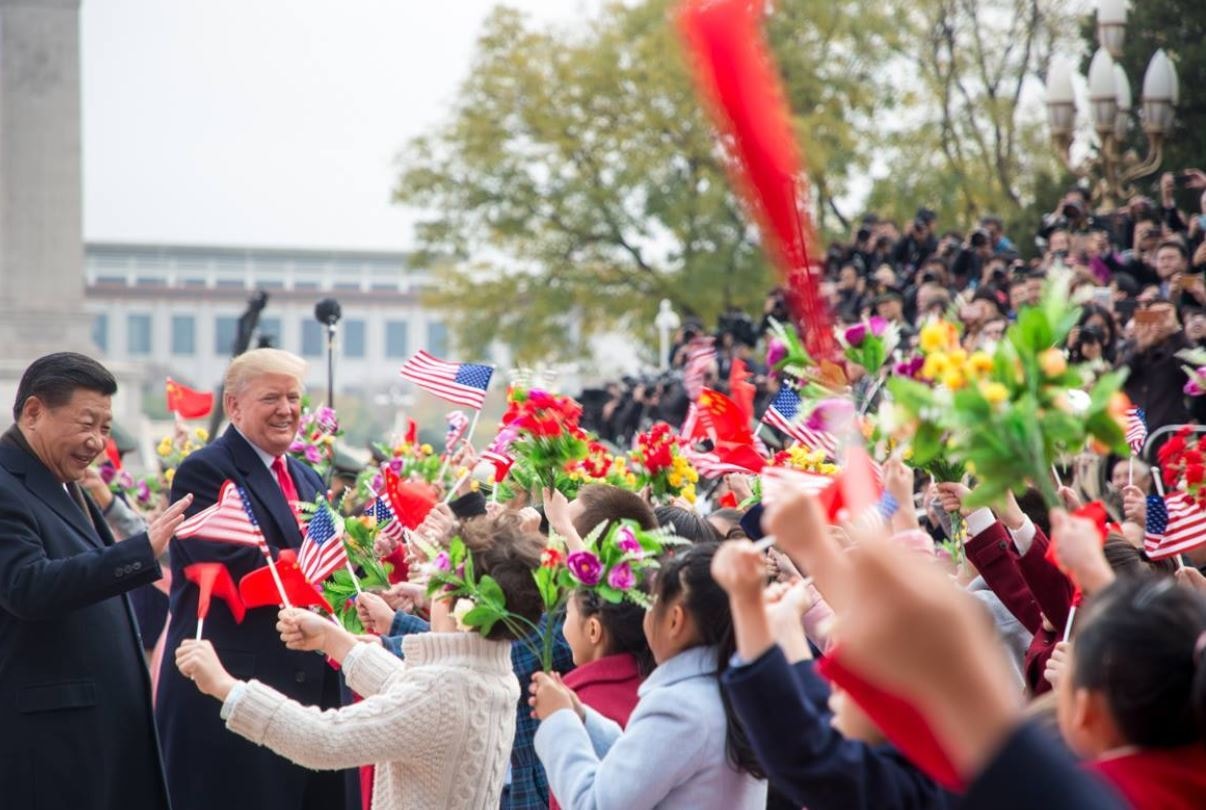 |
| US President Donald Trump and Chinese President Xi Jinping at a welcoming ceremony outside the Great Hall of the People on November 9, 2017 in Beijing, China. Photo: White House |
Conclude
The evolution of US-China relations is not only a matter of strategic importance for the two countries, but also for the international community. In-depth discussions on these fundamental issues are necessary to increase common understanding and thereby build greater overall trust and effectiveness in the relationship.
It is crucial that the US-China relationship enters a “mature marriage,” where mutual respect, common interests, and an understanding of the negative consequences of an antagonistic relationship bind the two countries together. In this marriage, divorce is not an option, as it would be detrimental to global stability and growth, both politically and economically.

